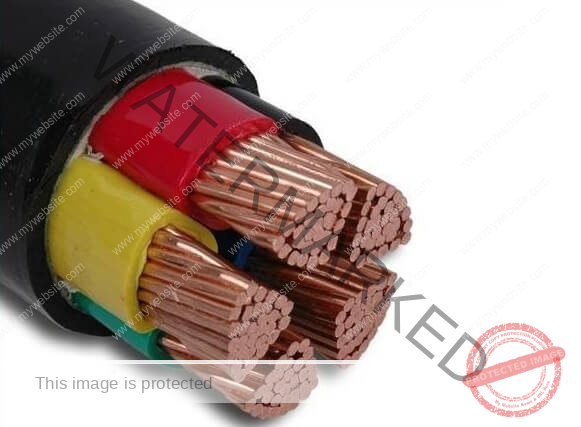Electricity is an essential aspect of modern life, powering various aspects of our existence from entertainment to medical processes. To harness and transmit electricity effectively, we rely on electrical cables. In Nigeria, a range of high-quality cables are produced by reputable manufacturers. In this post, we’ll delve into the world of electrical cables, focusing on the widely used 16 mm cable. We’ll also provide insights into its types, sizes, and current market prices.
Types of Electrical Cables and Their Uses
Electrical cables serve the crucial function of transmitting and distributing electrical power. They consist of three key components: the conductor, which facilitates current flow, the dielectric, which insulates the conductor and withstands voltage, and the sheath, which protects the cable from external influences.
Here are the five main categories of electrical cables and their purposes:
-
Ribbon Electric Cables:
- Comprising multiple insulated wires running parallel, these cables facilitate simultaneous data transmission. They are commonly used in connecting networking devices.
-
Shielded Cables:
- Made up of one to two insulated wires shielded by aluminum mylar foil or a woven braided shield, these cables enhance signal transmission. They are ideal for transmitting high voltage current.
-
Twisted Pair Cables:
- These cables feature two or more color-coded, intertwined insulated copper wires, commonly used in telephone cables. The level of resistance to external interference depends on the number of wires intertwined.
-
Coaxial Cables:
- Consisting of a steel conductor plated with copper, enclosed in metallic tape and braid, and protected by an insulated outer jacket, these cables find applications in audio-video and computer networking.
-
Fiber Optics Cables:
- Used to transport optical data signals from a light source to receiving devices, fiber optics cables serve a wide range of purposes.
Electrical Cable Measurements and Their Uses
Electrical cables come in various sizes, each designed for specific applications. Here are some common cable sizes and their uses:
-
1.5 mm Cable:
- Suitable for low-current applications such as thermostats, security systems, and bells.
-
2.5 mm Cable:
- Similar to 1.5 mm cables in current capacity, they are primarily used for lamps.
-
4 mm Cable:
- Designed for medium-current applications, commonly used in lighting.
-
6 mm Cable:
- Like 4 mm cables, they handle medium current and are employed in wiring appliances like blenders and microwaves.
-
10 mm Cable:
- Transmitting a higher current than 4 mm and 6 mm cables, they are used for appliances like dryers and refrigerators.
-
16 mm Cable:
- Capable of handling high current loads, they are employed for electric stoves, power connections, and air conditioners.
-
25 mm Cable:
- Built for very high current loads, they are used in industrial equipment and central air conditioning units.
16 mm Cable Prices in Nigeria
- Coleman Original 16mm Single Core Pure Copper Cable – 100meters: From N136,740
- Cutix 16 mm Single Core Copper Wire: From N116,000
- Nigerchin 16 mm Single Core Copper Wire: From N51,700
- Vecan 16 mm Single Core Copper Wire: From N130,000
- Cutix 16 mm Four Core Armored Cable per meter: From N5,200
- Coleman 16 mm Pure Copper Cable: From N136,740
- Dante 25 mm Four Core Armored Cable: From N5,800
Conclusion
Electricity is the lifeblood of modern society, and electrical cables are the conduits that enable its effective distribution. Understanding the different types, sizes, and prices of electrical cables is crucial for any electrical project. In Nigeria, a variety of reputable brands offer high-quality cables to suit various needs. Keep in mind that prices may fluctuate, so it’s advisable to stay updated with the latest market trends.

